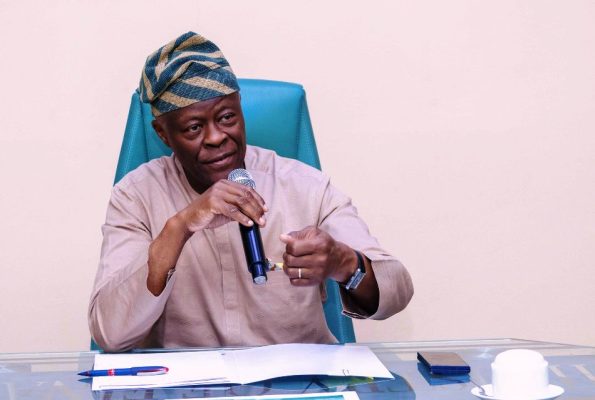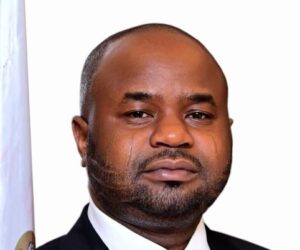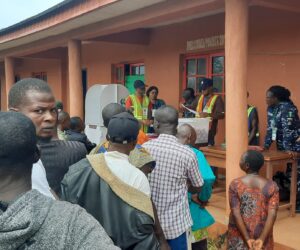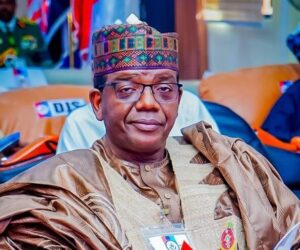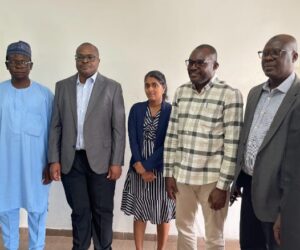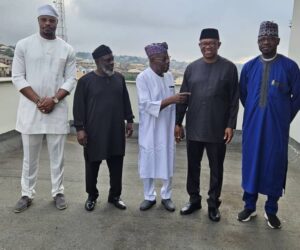1
….Nigeria Needs Long-Term Capital, Infrastructure Investment— Oteh
…Sanusi Blames Decades Of Inaction On Fuel Subsidy For Hardship
The Minister of Finance and Coordinating Minister of the Economy, Wale Edun, has assured Nigerians that the Federal Government’s ongoing economic reforms are being implemented with a strong focus on easing the hardships faced by ordinary citizens, particularly the poor and vulnerable.
Speaking at the Oxford Global Think Tank Leadership Conference on Tuesday in Abuja, the minister acknowledged the economic challenges confronting Nigerians, including rising food and transport costs, but emphasised that measures were already in place to cushion the effects of the reforms.
According to the minister, the government has established a transparent, accountable, and robust system for providing direct payments to 15 million households across the country.
“Each individual beneficiary is identified by name and their national identity number, and payments are made digitally—either directly to their bank accounts or mobile wallets,” the minister explained.
He added that the process ensures transparency and accountability while enabling the government to monitor disbursements in real time.
Responding to concerns that some communities had yet to benefit from the payments, the minister said data would soon be released showing the names of beneficiaries who had received the first, second, and third tranches.
Beyond the cash transfers, the minister disclosed that the government was also implementing a ward-based development programme designed to take resources, information, and funding directly to the 8,809 wards in Nigeria’s 774 local government areas.
“The initiative will empower economically active people at the ward level—supporting small businesses, cottage industries, and local entrepreneurs to boost production and create sustainable livelihoods,” he stated.
He further noted that the reforms aim not only to stabilise the economy but also to ensure that their benefits “reach right down to the lowest levels of society.”
Commenting on youth involvement, the minister praised Nigerian young people for embracing values such as empathy, integrity, and responsibility, describing them as essential traits for the country’s next generation of leaders.
He commended the organisers of the event for fostering dialogue on leadership and development, reiterating that the government’s goal was to build an inclusive economy where every Nigerian feels the positive impact of reforms.
Former Director-General of the Securities and Exchange Commission (SEC) and founder Oxford Global Think Tank, Ms. Arunma Oteh, at the event called for urgent action to mobilise long-term capital, accelerate infrastructure development, and decentralise the management of Nigeria’s mineral resources to unlock sustainable growth.
Oteh, who was also Vice President at the World Bank, said Nigeria’s economic potential can only be realised if the country creates an environment that attracts “reasonably priced, long-term, patient capital” for both government and private sector development.
According to her, Nigeria’s infrastructure deficit remains a major barrier to growth. Citing data from China, she noted that the Asian country invested about 24 percent of its GDP in infrastructure, compared to Nigeria’s 4–5 percent. “If we want to bridge our infrastructure gap, we must increase that investment to at least 12 percent of GDP,” she stated.
Oteh commended some recent government initiatives but stressed that both the central bank and the Ministry of Finance must “scale up” their efforts to raise capital that supports small businesses and large-scale public works. “Small businesses need affordable financing, and the government needs to expand its capacity to invest in roads, power, and logistics to move goods to markets,” she said.
Beyond infrastructure, Oteh highlighted the importance of diversifying Nigeria’s economy through its mineral wealth, pointing out that the country possesses at least 40 commercially viable minerals that remain underexploited.
“Why are we not exporting these 40 minerals in commercial quantities?” she asked. “Why are minerals still on the exclusive legislative list? We should decentralise the sector so that each state can develop and benefit from its natural resources. That is how to expand our revenue base and create jobs.”
Oteh further revealed that the Oxford Global Project had chosen to produce a special report on ‘Reforming Africa’s Mineral Sector to Prosper Africa,’ reflecting a growing global interest in the continent’s resource potential.
On leadership, Oteh said Nigeria’s transformation requires leaders with character, compassion, competence, and courage.
She urged the next generation of Nigerian leaders to embody these values in public service and business.
“Our grandparents taught us that leadership is about values— doing the right thing even when it’s hard. If we have that kind of leadership, the next generation will take Nigeria to greater heights,” she said.
She concluded by urging collective action from both public and private sectors: “We all need to put our hands on deck—government, business, and citizens—to invest in our nation and create opportunities for everyone.”
Also, a former Central Bank of Nigeria (CBN) governor, Sanusi Lamido Sanusi, has said that the country’s current economic hardship is the cumulative consequence of failing to remove fuel subsidy more than a decade ago.
Sanusi, who is the current Emir of Kano, stressed that the failure to understand basic economic principles had led to misplaced expectations among citizens regarding the roles of government institutions such as the CBN and the Ministry of Finance.
He explained that the removal of fuel subsidy was not just an economic decision but a necessary correction to an unsustainable policy. “If you pay N65 per litre and suddenly begin to pay N160, of course there will be hardship,” Sanusi said. “The duty of leadership is to recognise that there will be costs and to mitigate them— not to avoid reform entirely.”
According to him, the arrangement Nigeria operated for years was not a subsidy but a “hedge,” which effectively exposed the country to unlimited financial liability. “The government told 200 million Nigerians they would not pay more than a fixed amount per litre no matter what happened to oil prices or exchange rates. When oil went from $40 to $140, the Federal Government paid the difference. When the naira depreciated from N155 to N300, the government paid the difference. That was not a subsidy; it was the worst form of derivative—an open-ended hedge,” he explained.
Sanusi said Nigeria eventually reached a point where it was borrowing money not just to pay subsidies but also to service the interest on those loans, a trajectory he described as “bankruptcy by policy.”

